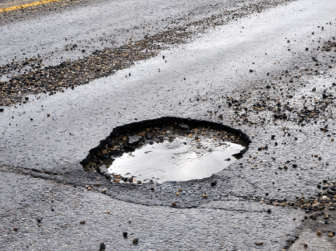This April we’re enjoying a slight relief in the petrol price, but most of us are still looking at ways to cut back our living costs. There are lots of ways to save money on petrol, but some advice on this topic is out of date or simply wrong.
For this blog, we’ve investigated various myths about saving petrol. Stop believing these myths:
 Myth #1: Premium fuel is best
Myth #1: Premium fuel is best
Many people believe that using high-octane fuel somehow improves their engine's power. That is not necessarily true. If your car manufacturer recommends using premium fuel, then you should stick to the manufacturer’s guidelines. This is usually the case with high performance cars.
However, if you drive a ‘regular’ car, you can use regular fuel. Paying for premium fuel offers no benefit to your car: It won’t perform better, get more mileage, go faster, or run cleaner. Paying for premium petrol when your car is built for regular fuel will only benefit the petrol companies.
 Myth #2: I need to warm up my car before driving cold
Myth #2: I need to warm up my car before driving cold
Don’t waste petrol on warming up your car’s engine. While older engines took longer to warm up, engines based on new technology can do so in 20-30 seconds. You can drive your car once the engine is lubricated. Just don’t accelerate heavily during the first few minutes.
When you minimise the time spent idling your car (see point below), you save petrol. In cold weather, the engine will warm up faster once you’re driving.
 Myth #3: You'll get more petrol if you fill up in the morning
Myth #3: You'll get more petrol if you fill up in the morning
The theory says that petrol expands at higher temperatures and becomes denser in the cold mornings. So, if you fill-up the petrol tank on a cold morning, you’ll get more fuel since the quantity of fuel is measured in litres rather than kgs or lbs.
But there is one flaw in the theory: Fuel reservoirs at gas stations are immune to temperature changes. The tanks are covered with concrete to avoid heat conduction. Hence, no matter the outside temperature, the temperature and quantity of the fuel stays the same.
 Myth #4: Letting your car idle is more fuel efficient than turning it on and off
Myth #4: Letting your car idle is more fuel efficient than turning it on and off
It is an old myth that restarting your engine consumes more fuel than letting it idle for several minutes. This was true in the case of engines that used carburettors. However, newer engines that use direct or electronic fuel injection techniques are more intelligent than that.
So, if your car was manufactured after 1980 and doesn’t use a carburettor, turning it off will save more petrol than letting it idle.
Save petrol with regular vehicle maintenance
One of the tried and tested ways to save petrol is by regularly maintaining your car. This will help your car achieve its most efficient fuel economy.
Some overlooked maintenance items (like a dirty air filter) can increase your fuel cost up to 13%. Most maintenance plans include such items, so investing in a comprehensive plan can help you save on fuel long-term, and it will help keep your car on the road for longer. Click here to find out more about a Maintenance Plan through MotorHappy.
The four things we love best about the Haval Jolion S
Used car shopping? Includes Extended Warranty, and other tips


